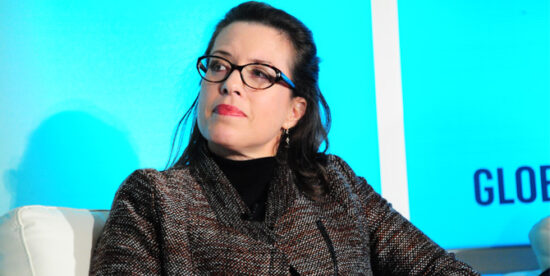
Women’s History Month, which we celebrate annually each March, moved me to reflect on the contributions of women and their changing role in the world. I discovered that scholarship and statistics strongly suggest societies which empower women are more peaceful and developed then their less-enlightened counterparts. The U.S. Department of State recognizes the importance of gender equality as it fills leadership positions and ensures its own organizational culture reflects the influence and example it hopes to set for the international community.
Just twenty years ago, women comprised 27 percent of the Foreign Service. Few held senior positions. These numbers have grown to 40 percent. More women now hold senior and mid-level positions. The Department of State is honoring its commitment to transforming the service to become more representative of the American people through the inclusion and promotion of women and minorities.
I recently had the opportunity to discuss these trends with Kelly Keiderling, Principal Deputy Assistant Secretary of State in the Bureau of Educational and Cultural Affairs. Her experiences are unique. Kelly saw firsthand how the Department of State jettisoned its roots as a male-dominated institution in favor of inclusiveness.
Kelly joined the Foreign Service in the late 1980s, affording her a bird’s eye view of the Department of State’s transformation over the past 35 years. Once notoriously sexist, the foreign policy establishment has strived to keep pace with changes in our society at large.
Kelly views the 1997 appointment of Madeleine Albright as the first female Secretary of State as a milestone in the Department of State’s history.
Kelly’s father was a Foreign Service Officer like his daughter. She traveled the world at a young age, experiencing the structural disadvantages women faced globally. Her father served primarily in Latin America, and met her mother in Bolivia. In those days, wives were expected to give support to their Foreign Service husbands by entertaining at home or taking part at receptions. Like all Foreign Service Officers of her father’s generation, his career advancement depended on how well his wife performed in the role the system demanded she fulfill. Kelly learned quickly that she would need to work harder in order to succeed in a male-dominated world.
Kelly views the 1997 appointment of Madeleine Albright as the first female Secretary of State as a milestone in the Department of State’s history. From her point of view, this demonstrated that women could perform as capably as men in the Department’s top job, leading the way to the selection of her successor, Colin Powell. Secretary Powell promoted gender and racial diversity and welcomed a wide range of points of view in his approach to management. The former general is respected for many reasons, including incorporating his entire team into the decision-making process.
Colin Powell recognized these challenges, noting, “We, as a world community, cannot even begin to tackle the array of challenges confronting us without the full and equal participation of women in all aspects of life.”
By the time Condoleezza Rice and Hillary Clinton took the leadership helm, Kelly saw a Department of State familiar and comfortable with the concept of female decision-making, thanks to its experiences with transformative leaders. The Bureau of Educational and Cultural Affairs has particularly benefitted from efforts to advance women’s leadership roles as women account for more than half its personnel.
The Bureau of Educational and Cultural Affairs understands that women can contribute to public diplomacy, because they are often taught from childhood to connect to their communities and foster mutual understanding. They are adept at spotting opportunities for common endeavors, enabling them to explain and advocate their nation’s interests.
Despite these developments, more needs to be done. Women experience considerable stress throughout their career, due to child, spousal, and elder care responsibilities. Colin Powell recognized these challenges, noting, “We, as a world community, cannot even begin to tackle the array of challenges confronting us without the full and equal participation of women in all aspects of life.”
Global Ties U.S. is committed to the worldwide advancement of women’s issues. This May, we are hosting the Discover Diplomacy Weekend with a focus on women’s leadership in foreign policy. I urge you to continue the conversation with us in Washington, DC to see how we can advance women’s rights together.
By Jennifer Clinton, PhD, President, Global Ties U.S. Follow her on Twitter: @CDJClinton
